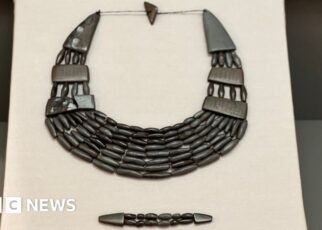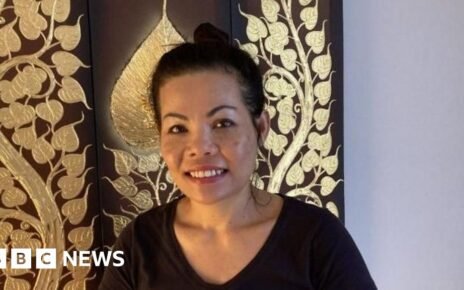[ad_1]
Jewellery worn by a Scottish woman of wealth during the Bronze Age is going on show for the first time in 4,000 years.
Pieces of the necklace and bracelet were discovered in 1870 in a burial site at the former Balgay Estate, near Dundee.
National Museums Scotland conservators have combined the original beads with recreations to return the items to their original state.
The jewellery is now on display at Dundee’s McManus Art Gallery and Museum.
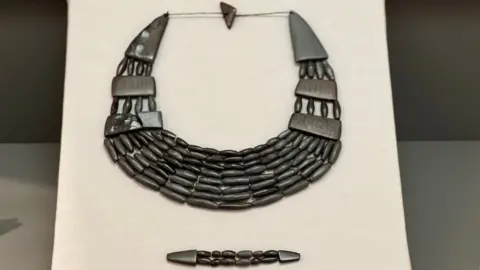
Matthew Knight, senior curator of prehistory at National Museums Scotland, said the project had been “essentially a jigsaw puzzle.”
He said: “It was part of a jewellery set that was buried with the dead, and the restoration involved several layers of analysis, including X rays of the beads to understand how they were made.
“People are genuinely interested in these discoveries, they tell us so much about human nature and about the people that lived in Scotland before us.”
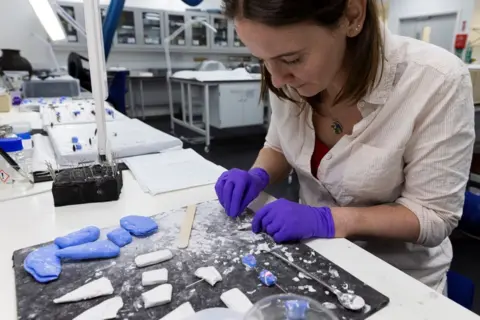 Duncan McGlynn
Duncan McGlynnMr Knight said the items were “very elaborate, high-status objects.”
He said: “It was a sign of your wealth, and to be buried with one in death also conveyed that status.
“We can assume that the person who owned and wore this was well-respected within society.”
Mr Knight said other burials uncovered around Dundee and along the east coast had also revealed items of jewellery.
He said: “It suggests a fairly rich community of people living here, probably as a result of the very good agricultural land.”
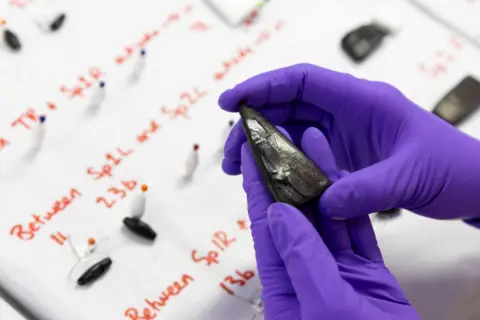 Duncan McGlynn
Duncan McGlynnThe excavation uncovered 42 jet beads and nine jet plates.
The beads were originally thought to come from a single piece of jewellery, but recent research revealed that they belong to a matching bracelet and necklace set.
The plates are decorated with intricate bored dot designs, indicating they were valuable pieces.
Signs of wear on the larger plates shows the jewellery was worn frequently.
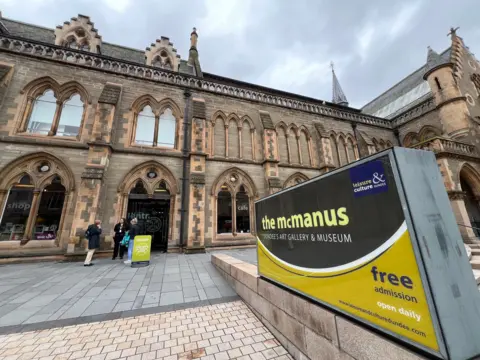
National Museums Scotland assistant conservator Bethan Bryan said the necklace parts were “dusty but in great condition” when presented for restoration.
She said: “My job was to assess the “jets” and then make new beads to replace the ones that were not found during the excavation.
“I took casts of the beads we do have and used them to make 66 new ones from resin plaster and painted.”
Ms Bryan said it had taken her about 50 hours to complete the project.
“When you’ve done quite a lot of work, it’s lovely to see them on display, it makes it all worthwhile.”
[ad_2]
Source link
